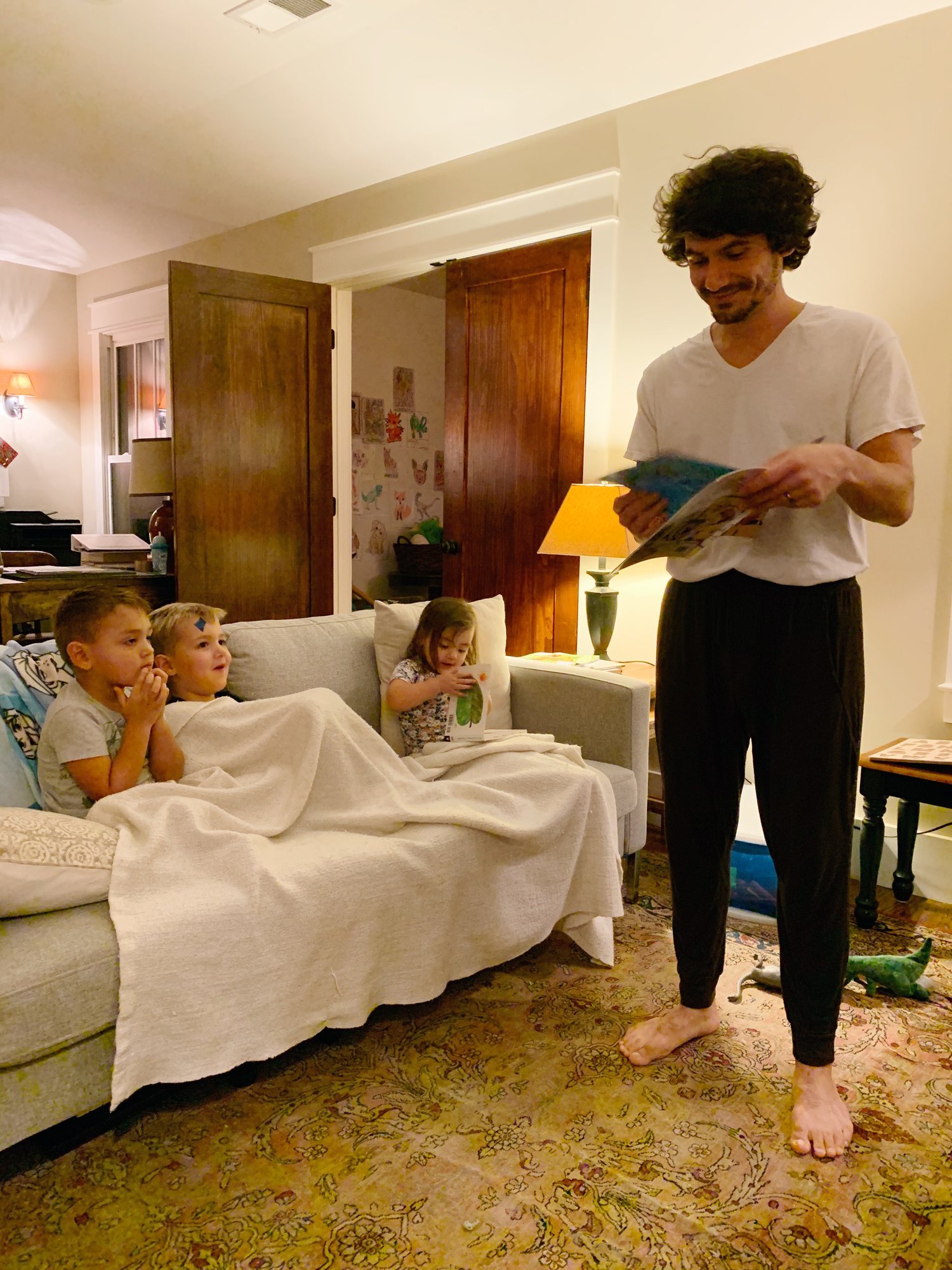9 Readers Share Tips for Teaching Your Child to Become a Better Reader
/We’ve been trying to get our oldest into reading more. Right now, he doesn’t enjoy reading, but I think that’s mostly because he hasn’t really learned how to read well yet. He can read almost all words, but he’s struggling to comprehend and really get into the story, and a lot of that is a lack of interest.
We read to him almost daily, we have him read aloud to us, and we ask him what the story he’s reading is about. We’ll get there, I just know it.
In an effort to get him caught up, I asked you for tips on how to help your child become a better reader, and you gave us so much good advice that I wanted to share (thank you!). If you’re looking for some advice in this area, below are a few of your responses, and if you want to see the rest, you can click here.
“Get them books about what they are interested in. For example, if you plan a vacation, find books about what you can see and do there. If you are going to a movie, find books about the topic ahead of time. Get some books about the baby animals on the farm or sports they like.
Read aloud to them. Pick a book as a family and read a chapter every night (or day). 3. Let them see you read. They need to see that reading is a fun and pleasurable experience, not just a subject in school. Maybe the entire family puts aside electronics for 30-60 minutes every night and reads. Then, share something about what was read.
This is important and is often skipped, but TALK to them about what they are reading. Not only can you check their comprehension but you are sending the message that what they are reading is important to you.” -Sue
“Go to the public library together, let the kids pick out books, and read to them as a family. Ask questions about the stories. Another wonderful option is to listen to audio books.'“ -Patrick
“In my experience a series that draws their interest and will make them want to read. For me it was Harry Potter my aunt read and recorded the first 10 chapters for me to follow along then when I wanted to know what happened I had to start reading the book so I could find out.” -Andrew
“This sounds ridiculous but we taught [our child] how to read by putting subtitles on her favorite shows. She started associating the words with the pictures.” -Jill
“Phonics... if you/kids can "sound out" a word, they can pretty much read anything. "Hooked On Phonics" seems to be most widely used but there are 100's of books available here.” -Steve
“7 Keys to Comprehension How to Help Your Kids Read It and Get It by Susan Zimmerman and Chryselephantine Hutchins. You can get it on Amazon for $12. I used this book when I was a teacher and when I was literacy coach. I had amazing results using this book as a guide.” -David
“Make it a game, be consistent with time of day. Play the characters . Reread the same material. Switch between you reading to the child and the child reading to you. Age appropriate with pics to give clues. Dr Seuss is your friend.” -Steven
“Phonics! If your child cannot hear the parts of a word then they cannot read the parts of a word. You have to start with learning by sound before you ever look at the print word. Best skills for this: rhyming, give them 2 words that rhyme and one that doesn’t have them pick out the incorrect one. Syllables. Have them clap ( or my favorite hum) a word and tell you how many parts are in the word. Give them a word such as fan. Say if you take out the “f” sound in fan and replace it with the “p” sound what word do you have? These make great games for car rides, while your cooking dinner and they are helping, or really anytime.
Also, any and all Jack Hartman videos on YouTube. They are fun and really help with learning letter sounds/blends/ and he even has topics for other subjects!
All of these will really help learning the basics of the word and lead to a better more confident reader!” -Kate
“I’m an English teacher and Mom. This is what I do with my kids.
Get their Lexile level from their iReady report.
Then choose a book they are very interested in, that is just a little above their lexile (which is their independent reading level). Have them read to you, but when they get stuck on a difficult word, model how you work through or sound out that word (I often cover half of the word, to make it more approachable).
If they are in chapter books and get fatigued, finish the chapter for them.” -Samantha





















